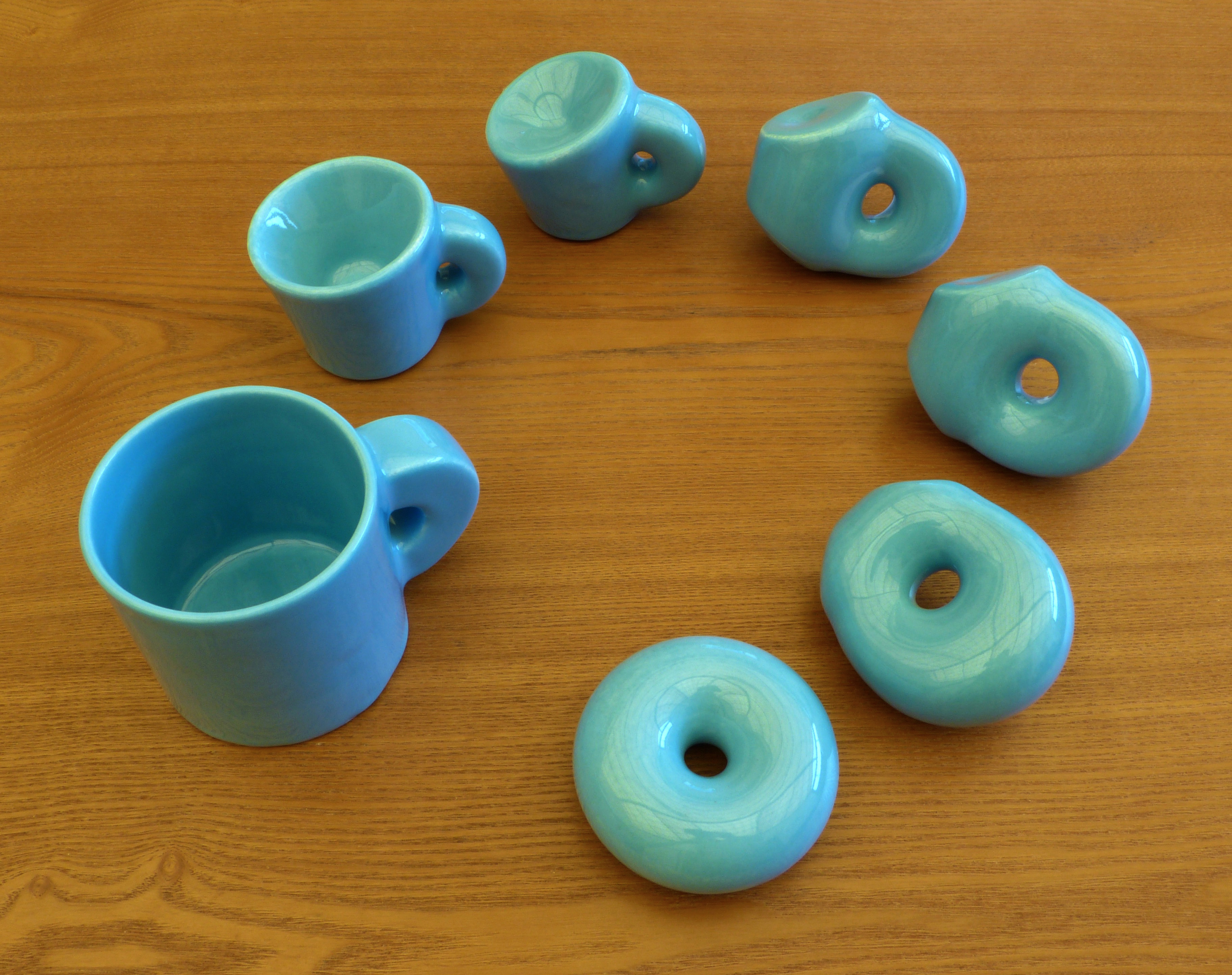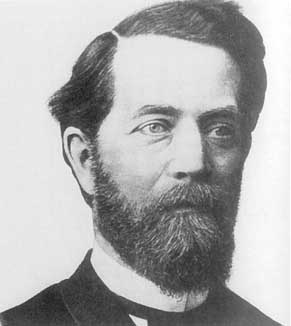|
Markus Rost
Markus Rost is a German mathematician who works at the intersection of topology and algebra. He was an invited speaker at the International Congress of Mathematicians in 2002 in Beijing, China. He is a professor at the University of Bielefeld. He is known for his work on norm varieties (a key part in the proof of the Bloch–Kato conjecture) and for the Rost invariant (a cohomological invariant with values in Galois cohomology of degree 3). Together with J.-P. Serre he is one of the cofounders of the theory of cohomological invariants of linear algebraic groups. He has also made numerous contributions to the theory of torsors, quadratic forms, central simple algebras, Jordan algebras (the Rost-Serre invariant), exceptional groups, and essential dimension. Most of his results are available only on his webpage. In 2012 he became a fellow of the American Mathematical Society The American Mathematical Society (AMS) is an association of professional mathematicians dedicated to th ... [...More Info...] [...Related Items...] OR: [Wikipedia] [Google] [Baidu] |
Topology
In mathematics, topology (from the Greek language, Greek words , and ) is concerned with the properties of a mathematical object, geometric object that are preserved under Continuous function, continuous Deformation theory, deformations, such as Stretch factor, stretching, Twist (mathematics), twisting, crumpling, and bending; that is, without closing holes, opening holes, tearing, gluing, or passing through itself. A topological space is a set (mathematics), set endowed with a structure, called a ''Topology (structure), topology'', which allows defining continuous deformation of subspaces, and, more generally, all kinds of continuity (mathematics), continuity. Euclidean spaces, and, more generally, metric spaces are examples of a topological space, as any distance or metric defines a topology. The deformations that are considered in topology are homeomorphisms and homotopy, homotopies. A property that is invariant under such deformations is a topological property. Basic exampl ... [...More Info...] [...Related Items...] OR: [Wikipedia] [Google] [Baidu] |
Abstract Algebra
In mathematics, more specifically algebra, abstract algebra or modern algebra is the study of algebraic structures. Algebraic structures include groups, rings, fields, modules, vector spaces, lattices, and algebras over a field. The term ''abstract algebra'' was coined in the early 20th century to distinguish this area of study from older parts of algebra, and more specifically from elementary algebra, the use of variables to represent numbers in computation and reasoning. Algebraic structures, with their associated homomorphisms, form mathematical categories. Category theory is a formalism that allows a unified way for expressing properties and constructions that are similar for various structures. Universal algebra is a related subject that studies types of algebraic structures as single objects. For example, the structure of groups is a single object in universal algebra, which is called the ''variety of groups''. History Before the nineteenth century, algebra meant ... [...More Info...] [...Related Items...] OR: [Wikipedia] [Google] [Baidu] |
List Of International Congresses Of Mathematicians Plenary And Invited Speakers
This is a list of International Congresses of Mathematicians Plenary and Invited Speakers. Being invited to talk at an International Congress of Mathematicians has been called "the equivalent, in this community, of an induction to a hall of fame." The current list of Plenary and Invited Speakers presented here is based on the ICM's post-WW II terminology, in which the one-hour speakers in the morning sessions are called "Plenary Speakers" and the other speakers (in the afternoon sessions) whose talks are included in the ICM published proceedings are called "Invited Speakers". In the pre-WW II congresses the Plenary Speakers were called "Invited Speakers". By congress year 1897, Zürich * Jules Andrade * Léon Autonne *Émile Borel * N. V. Bougaïev *Francesco Brioschi *Hermann Brunn *Cesare Burali-Forti *Charles Jean de la Vallée Poussin *Gustaf Eneström *Federigo Enriques *Gino Fano * Zoel García de Galdeano * Francesco Gerbaldi *Paul Gordan *Jacques Hadamard * Adolf Hurwitz ... [...More Info...] [...Related Items...] OR: [Wikipedia] [Google] [Baidu] |
University Of Bielefeld
Bielefeld University (german: Universität Bielefeld) is a university in Bielefeld, Germany. Founded in 1969, it is one of the country's newer universities, and considers itself a "reform" university, following a different style of organization and teaching than the established universities. In particular, the university aims to "re-establish the unity between research and teaching", and so all its faculty teach courses in their area of research. The university also stresses a focus on interdisciplinary research, helped by the architecture, which encloses all faculties in one great structure. It is among the first of the German universities to switch some faculties (e.g. biology) to Bachelor/Master-degrees as part of the Bologna process. Bielefeld University has started an extensive multi-phase modernisation project, which is to be completed by 2025. A total investment of more than 1 billion euros has been planned for this undertaking. Campus The university is located in th ... [...More Info...] [...Related Items...] OR: [Wikipedia] [Google] [Baidu] |
Norm Varieties
In mathematics, a norm variety is a particular type of algebraic variety ''V'' over a field ''F'', introduced for the purposes of algebraic K-theory by Voevodsky. The idea is to relate Milnor K-theory of ''F'' to geometric objects ''V'', having function fields ''F''(''V'') that 'split' given 'symbols' (elements of Milnor K-groups). The formulation is that ''p'' is a given prime number, different from the characteristic of ''F'', and a symbol is the class mod ''p'' of an element :\\ of the ''n''-th Milnor K-group. A field extension is said to ''split'' the symbol, if its image in the K-group for that field is 0. The conditions on a norm variety ''V'' are that ''V'' is irreducible and a non-singular complete variety. Further it should have dimension ''d'' equal to :p^ - 1.\ The key condition is in terms of the ''d''-th Newton polynomial ''s''''d'', evaluated on the (algebraic) total Chern class of the tangent bundle of ''V''. This number :s_d(V)\ should not be divisib ... [...More Info...] [...Related Items...] OR: [Wikipedia] [Google] [Baidu] |
Rost Invariant
In mathematics, the Rost invariant is a cohomological invariant of an absolutely simple simply connected algebraic group ''G'' over a field ''k'', which associates an element of the Galois cohomology group H3(''k'', Q/Z(2)) to a principal homogeneous space for ''G''. Here the coefficient group Q/Z(2) is the tensor product of the group of roots of unity of an algebraic closure of ''k'' with itself. first introduced the invariant for groups of type F4 and later extended it to more general groups in unpublished work that was summarized by . The Rost invariant is a generalization of the Arason invariant. Definition Suppose that ''G'' is an absolutely almost simple simply connected algebraic group over a field ''k''. The Rost invariant associates an element ''a''(''P'') of the Galois cohomology group H3(''k'',Q/Z(2)) to a ''G''-torsor ''P''. The element ''a''(''P'') is constructed as follows. For any extension ''K'' of ''k'' there is an exact sequence :0\rightarrow H^3(K,\mathbf/\mat ... [...More Info...] [...Related Items...] OR: [Wikipedia] [Google] [Baidu] |
American Mathematical Society
The American Mathematical Society (AMS) is an association of professional mathematicians dedicated to the interests of mathematical research and scholarship, and serves the national and international community through its publications, meetings, advocacy and other programs. The society is one of the four parts of the Joint Policy Board for Mathematics and a member of the Conference Board of the Mathematical Sciences. History The AMS was founded in 1888 as the New York Mathematical Society, the brainchild of Thomas Fiske, who was impressed by the London Mathematical Society on a visit to England. John Howard Van Amringe was the first president and Fiske became secretary. The society soon decided to publish a journal, but ran into some resistance, due to concerns about competing with the American Journal of Mathematics. The result was the ''Bulletin of the American Mathematical Society'', with Fiske as editor-in-chief. The de facto journal, as intended, was influential in in ... [...More Info...] [...Related Items...] OR: [Wikipedia] [Google] [Baidu] |
Living People
Related categories * :Year of birth missing (living people) / :Year of birth unknown * :Date of birth missing (living people) / :Date of birth unknown * :Place of birth missing (living people) / :Place of birth unknown * :Year of death missing / :Year of death unknown * :Date of death missing / :Date of death unknown * :Place of death missing / :Place of death unknown * :Missing middle or first names See also * :Dead people * :Template:L, which generates this category or death years, and birth year and sort keys. : {{DEFAULTSORT:Living people 21st-century people People by status ... [...More Info...] [...Related Items...] OR: [Wikipedia] [Google] [Baidu] |
21st-century German Mathematicians
The 1st century was the century spanning AD 1 ( I) through AD 100 ( C) according to the Julian calendar. It is often written as the or to distinguish it from the 1st century BC (or BCE) which preceded it. The 1st century is considered part of the Classical era, epoch, or historical period. The 1st century also saw the appearance of Christianity. During this period, Europe, North Africa and the Near East fell under increasing domination by the Roman Empire, which continued expanding, most notably conquering Britain under the emperor Claudius ( AD 43). The reforms introduced by Augustus during his long reign stabilized the empire after the turmoil of the previous century's civil wars. Later in the century the Julio-Claudian dynasty, which had been founded by Augustus, came to an end with the suicide of Nero in AD 68. There followed the famous Year of Four Emperors, a brief period of civil war and instability, which was finally brought to an end by Vespasian, ninth Roman em ... [...More Info...] [...Related Items...] OR: [Wikipedia] [Google] [Baidu] |
Fellows Of The American Mathematical Society
{{disambiguation ...
Fellows may refer to Fellow, in plural form. Fellows or Fellowes may also refer to: Places * Fellows, California, USA * Fellows, Wisconsin, ghost town, USA Other uses * Fellows Auctioneers, established in 1876. *Fellowes, Inc., manufacturer of workspace products *Fellows, a partner in the firm of English canal carriers, Fellows Morton & Clayton * Fellows (surname) See also *North Fellows Historic District, listed on the National Register of Historic Places in Wapello County, Iowa *Justice Fellows (other) Justice Fellows may refer to: * Grant Fellows (1865–1929), associate justice of the Michigan Supreme Court * Raymond Fellows (1885–1957), associate justice of the Maine Supreme Judicial Court {{disambiguation, tndis ... [...More Info...] [...Related Items...] OR: [Wikipedia] [Google] [Baidu] |



